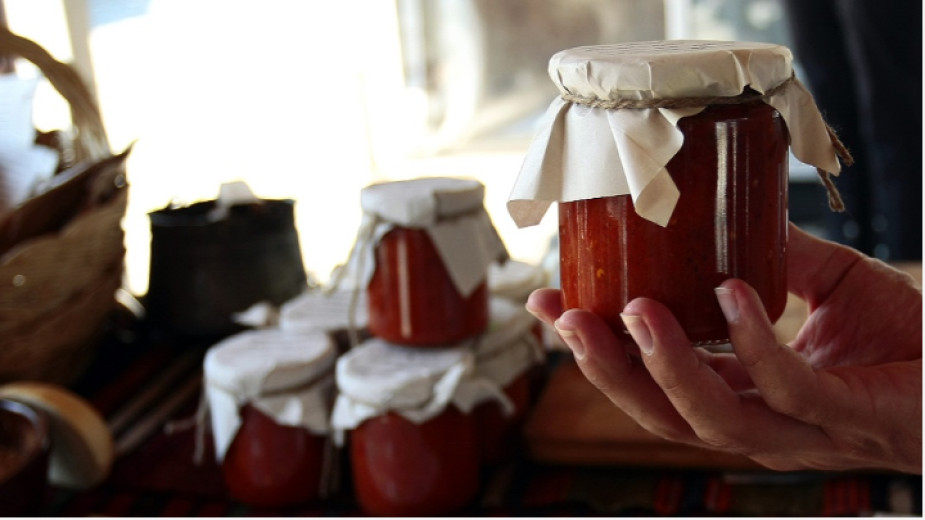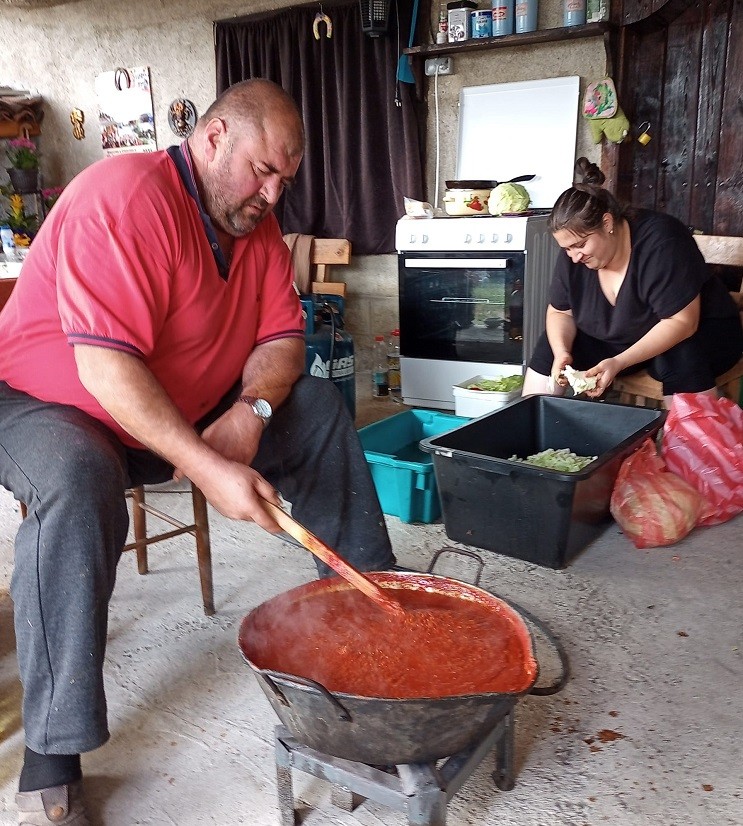 4
4
According to a popular Bulgarian song, the end of the summer comes with the smell of roasting peppers. The first autumn weeks are a period of hard work, especially for those who grow their own fruit and vegetables. It is time for them to pick their produce and get ready for the winter months. Tomatoes and red peppers are the most preferred vegetables. They are used in various fresh salads. Moreover, they are the main ingredients of the most popular Bulgarian canned product – lyutenitsa (tomato and red pepper relish). Every cannery in Bulgaria produces this traditional Bulgarian food. The product’s recipe is quite simple chopped tomatoes (or tomato puree), roast peppers and aubergines, vegetable oil, salt, sugar and spices.

According to manufacturers of tomato and pepper chutney, the demand of this product on the domestic market remains relatively constant throughout the year. Demand is slightly lower during the summer months when customers buy fresh vegetables. There are some new recipes containing apples and carrots for example. In the past, some producers tried to substitute the main ingredients of the popular product with other substances, in order to make quick profits. As a result, many Bulgarians started making their own homemade and organic lyutenitsa. According to industrial producers, the interest in homemade lyutenitsa has increased, which is due to the crisis and the good harvest of vegetables. “Those who make this product at home do not calculate their labor and electricity costs. They use their own vegetables and second-hand jars. Thus, the homemade product seems to be cheaper than the factory-made, but this is not the case”, contends an owner of a cannery.
Making lyutenitsa at home is a family hobby, Dimitrina Kesova and Mihail Kesov from the town of Zlatitsa said. All family members take part in this process. They use only vegetables planted in their own garden. “This year we produced more than 100 kilograms of peppers on 300 square meters of land. It cost us a lot of effort and required a lot of patience”, said Mihail Kesov.

“The bigger and darker the red peppers, the more delicious the final product. Tomatoes must be well-ripen as well. It takes one whole day to make lyutenitsa at home. We cook it in the garden on the hearth in a very large metal tray. You have to stir the ingredients until they thicken enough. Our children also help us make this delicious product. We work very hard in our vegetable garden. Moreover, you should be able to protect your plants from pests and diseases. This year our vegetables were affected by a hailstorm. We had to feed them on a regular basis to help them recover. I know that there is an old type of tomato used in the production of lyutenitsa, but we have not been able to plant this variety this year.”
Mihail’s wife has more about the subtleties of making a delicious lyutenitsa:
“You have to cook the tomato and pepper chutney slowly over a low fire. The whole process requires a lot of patience. You must sit around the fire and constantly stir the ingredients. It feels great to see that your efforts are not in vain and you have a homemade canned food for the winter.”
English version: Kostadin Atanasov
Photos: BGNES and private libraryToday, 24 October, a new Bulgarian school in Spain – in the town of Fraga in the autonomous community of Aragon - is opening doors for the start of the school year. The new school is a branch of the Seven Apostles – the only Bulgarian school in the..
The Bulgarian National Radio hosted the annual Public Broadcasters International (PBI) Conference for the first time. Heads and representatives of public radio and television stations from 24 countries participated, including UK, France, Spain, the USA,..
Long-distance sailing captain Svetlozar Tenev has set off from the port city of Varna on Bulgaria's northern Black Sea coast on a circumnavigation of the world . His route will begin in Las Palmas (Canary Islands , Spain), where the man will..
Over 80% of Bulgarians are expected to start using artificial intelligence in the next three years , across all age groups. Today, it is almost..
The village of Hotantsa, near the Danube city of Ruse, is hosting the Hotantsa Sarma Festival , a celebration of Bulgaria’s culinary and folk heritage...
He does not accept the definition of "apostle" or "missionary", although for many he is exactly that - a messenger of God in the world,..

+359 2 9336 661
